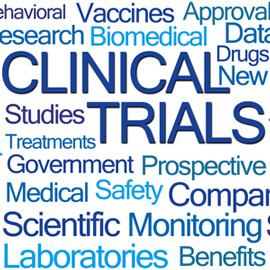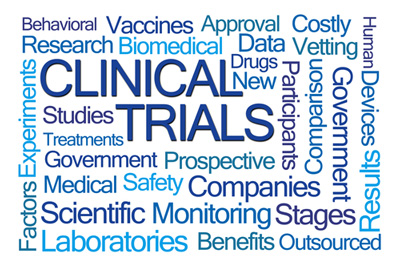Clinical trials – a rigorous framework for trial authorisation and patient safety monitoring
Posted: 26 February 2016 | | No comments yet
This review looks at the steps needed to complete clinical trials in the European Union (EU) and describes the rigorous regulatory framework involved in clinical research…


Medicine development takes an average of 12 years until approval for use in patients. Clinical research is an essential part of the development process but it is also the lengthiest and most expensive.


This review looks at the steps needed to complete this process in the European Union (EU) and describes the rigorous regulatory framework involved in clinical research. Liability and clinical trial transparency are summarised at the end.
Current EU Legal Framework for Clinical Trials in Humans – a Glimpse of the Future
The conduct of clinical trials (CT) in humans in the EU is regulated through Commission Directive 2001/20/EC [1]and reinforced by Directive 2005/28/EC[2], laying down rules on Good Clinical Practice (GCP). Compliance with them ensures the rights, safety, and wellbeing of clinical trial participants, consistent with the principles of the Declaration of Helsinki[3]; and that the clinical trial data are credible. Compliance with Good Manufacturing Practice (GMP)[4] is also required and ensures that the results of clinical trials are unaffected by inadequate safety, quality or efficacy arising from unsatisfactory manufacture. The directives and supplementary guidance must be read in conjunction with relevant national Member State level legislation and guidelines.
The European Clinical Trials framework will undergo a major change when the Clinical Trials Regulation 536/2014 [5]comes into application towards the end of 2018. The legislation becomes a regulation, rather than a directive, which will ensure key aspects have identical rules throughout the EU.
From Test Tubes to Animals
Drug discovery aims to find potential disease-altering targets, such as a gene or a protein in humans. When a candidate compound is found, its safety needs to be tested for a specific indication or disease condition. This pre-clinical or non-clinical testing phase takes up to four years. Candidate compounds need to be introduced into a living biological system (animal) to see if they function as anticipated. At least two different species of animals have to be used.
From Animals to Human Phase 1 Trials
If pre-clinical test results support further development, the candidate compound is tested in humans in a phase 1 clinical trial. All clinical trials, including phase 1 trials must first be registered in European EudraCT database after which the clinical trial application (CTA) is scrutinised by a Competent Health Authority and an Ethics Committee, in each country where the trial is intended to be conducted.
All clinical trials, including phase 1 trials only include participants who give their free, written consent prior to participation, after being informed about the possible harm the trial medicine may cause. This consent may be withdrawn at any time by the participant.
Phase 1 trials are conducted in a small number (20 to 80) of healthy volunteers and last approximately one year. The aim is to find the lowest dose at which the treatment is effective and the highest dose at which it can be taken without causing harm. The trial also measures the participant’s clinical response to the medicine, e.g. how it absorbs into the blood or the tissue.
From Healthy Volunteers to Larger Patient Populations
Where the phase 1 trial is successful, the compound is then evaluated in about 100 to 500 patients with the disease, in a phase 2 trial, for its potential efficacy while gathering further safety data. Taking around two years, it helps determine the most effective dosages, the best method of delivery (e.g. tablet form or injection) and begins evaluating the benefits and risks of the medicine.
Phase 3 – which can take over four years and involves several hundreds to many thousands of patients – is used to test the results of earlier phase 2 trials in larger populations and generate robust data about safety, efficacy and the overall benefit-risk relationship of the medicine. The compound at this stage is almost always compared to placebo (non-active substance) if ethical considerations permit, and/or to an “active comparator”. Active comparators are usually the best standard treatment (where this exists) for the investigated disease.The active comparator is used to determine if the new medicine has additional benefit beyond current treatment.
If the phase 2 and 3 trials meet their objectives, and/or the benefit/risk ratio of the medicine is favourable for a specific indication/ disease condition, the CT sponsor, commonly a pharmaceutical company, submits an application containing in depth information on the safety, efficacy and manufacturing (quality) of the medicine to a Competent Health Authority. A successful application results in a marketing authorisation for the medicine in that specific indication/ disease condition.
Often, phase 4 post-authorisation trials, that include thousands of patients globally and can take over 10 years to finalise, will be conducted to get more detailed information on medicine’s efficacy and safety in even larger patient populations. It is also more common to use data from disease and product registries to anticipate trends at this stage.
Clinical Trial Safety Reporting Regime
The detailed guideline CT-3 [6] from Directive 2001/20/EC sets the current rules on safety reporting for clinical trials in Europe – although national legislation may vary.
An investigator taking part in a clinical trial, commonly a study doctor at a hospital, has the responsibility to report, any non-serious and serious (un-expected) adverse reactions involving the trial medicine to the trial sponsor within 24 hours of when it occurred,. This is any untoward medical occurrence or effect.
The sponsor must inform the Competent Health Authority, within seven or 15 days of receiving the information (depending on the event) and must also record adverse events on an ongoing basis. Annual reports assessing the safety aspects of the clinical trial are required for all trials and assessed by Competent Health Authorities.
Transparency requirements
Trials conducted in the EU need to be registered with the EudraCT database. Since 2014, a summary of results of phase 2-4 studies that ended must also be submitted within 12 months of their end to the Clinical Trials Register[7], irrespective of the result.(within 6 months for paediatric trials).
The new EU Clinical Trials Regulation requires the submission of summary results and clinical study reports to be made public, based on predefined disclosure rules [8]. A new EU Portal and Database at the European Medicines Agency for publicly-accessible information should be operational by the end of 2018.
Data from clinical trials can also be obtained for products which have been approved by the European Medicines Agency (through the centralised approval procedure) through policy 0043 [9] on access to documents and policy 0070 [10] on proactive publication and access to clinical trial data. Furthermore, the European and American pharmaceutical industry trade associations (EFPIA and PhRMA) have also published their voluntary-based principles for responsible sharing of clinical trial data[11].
Legislation on Liability Now and in the Future
The Clinical Trials Directive 2001/20/EC also sets rules on liability and requires member states to provide insurance or indemnity cover for the investigator or sponsor.
Compensation is addressed in a little more detail by Clinical Trial Regulation 536/2014. If harm to the trial participant leads to the civil or criminal liability of the investigator or the sponsor, liability is governed by national law. All EU member states should ensure that systems for compensation for damages suffered are in place, which are appropriate to the nature and the extent of the risk.
References
- DIRECTIVE 2001/20/EC OF THE EUROPEAN PARLIAMENT AND OF THE COUNCIL of 4 April 2001, http://ec.europa.eu/health/files/eudralex/vol-1/dir_2001_20/dir_2001_20_en.pdf
- COMMISSION DIRECTIVE 2005/28/EC of 8 April 2005, http://eur-lex.europa.eu/LexUriServ/LexUriServ.do?uri=OJ:L:2005:091:0013:0019:en:PDF
- News version of Declaration of Helsinki http://jama.jamanetwork.com/article.aspx?articleid=1760318
- The Rules Governing Medicinal Products in the European Union Volume 4, EU Guidelines to Good Manufacturing Practice Medicinal Products for Human and Veterinary Use Annex 13 Investigational Medicinal Products, http://ec.europa.eu/health/files/eudralex/vol-4/2009_06_annex13.pdf
- REGULATION (EU) No 536/2014 OF THE EUROPEAN PARLIAMENT AND OF THE COUNCIL of 16 April 2014 http://ec.europa.eu/health/files/eudralex/vol-1/reg_2014_536/reg_2014_536_en.pdf
- Detailed guidance CT-3, http://ec.europa.eu/health/files/eudralex/vol-10/2011_c172_01/2011_c172_01_en.pdf
- Clinical Trials Register, https://www.clinicaltrialsregister.eu/
- Appendix to Functional Specifications of EU CT portal and database, http://www.ema.europa.eu/docs/en_GB/document_library/Other/2015/10/WC500195084.pdf
- European Medicines Agency policy on access to documents (related to medicinal products for human and veterinary use) Policy 0043, http://www.ema.europa.eu/docs/en_GB/document_library/Other/2010/11/WC500099473.pdf
- European Medicines Agency policy on publication of clinical data for medicinal products for human use http://www.ema.europa.eu/docs/en_GB/document_library/Other/2014/10/WC500174796.pdf
- EFPIA-PhRMA Principles for Responsible Clinical Trial Data Sharing, http://transparency.efpia.eu/uploads/Modules/Documents/data-sharing-prin-final.pdf









